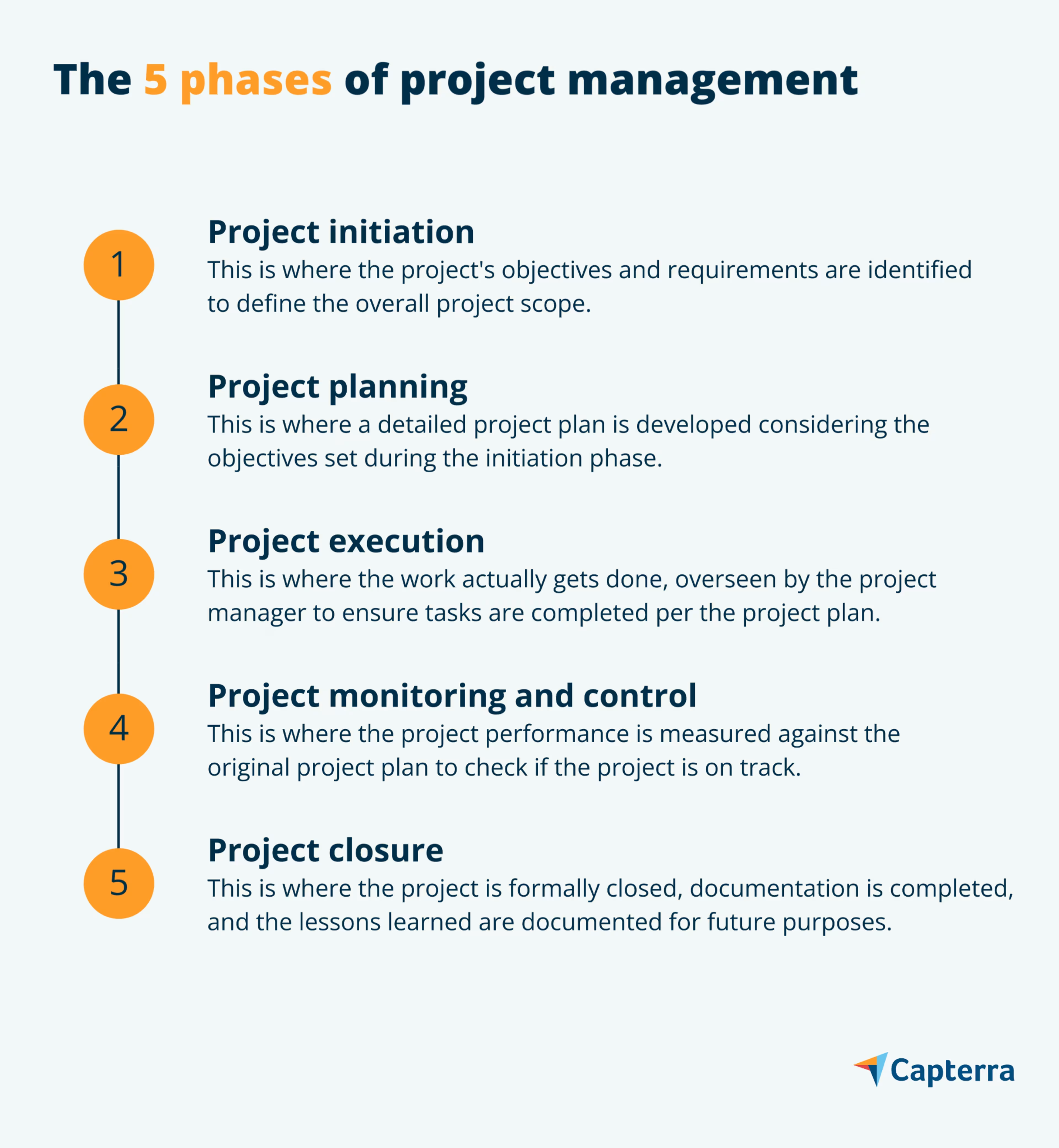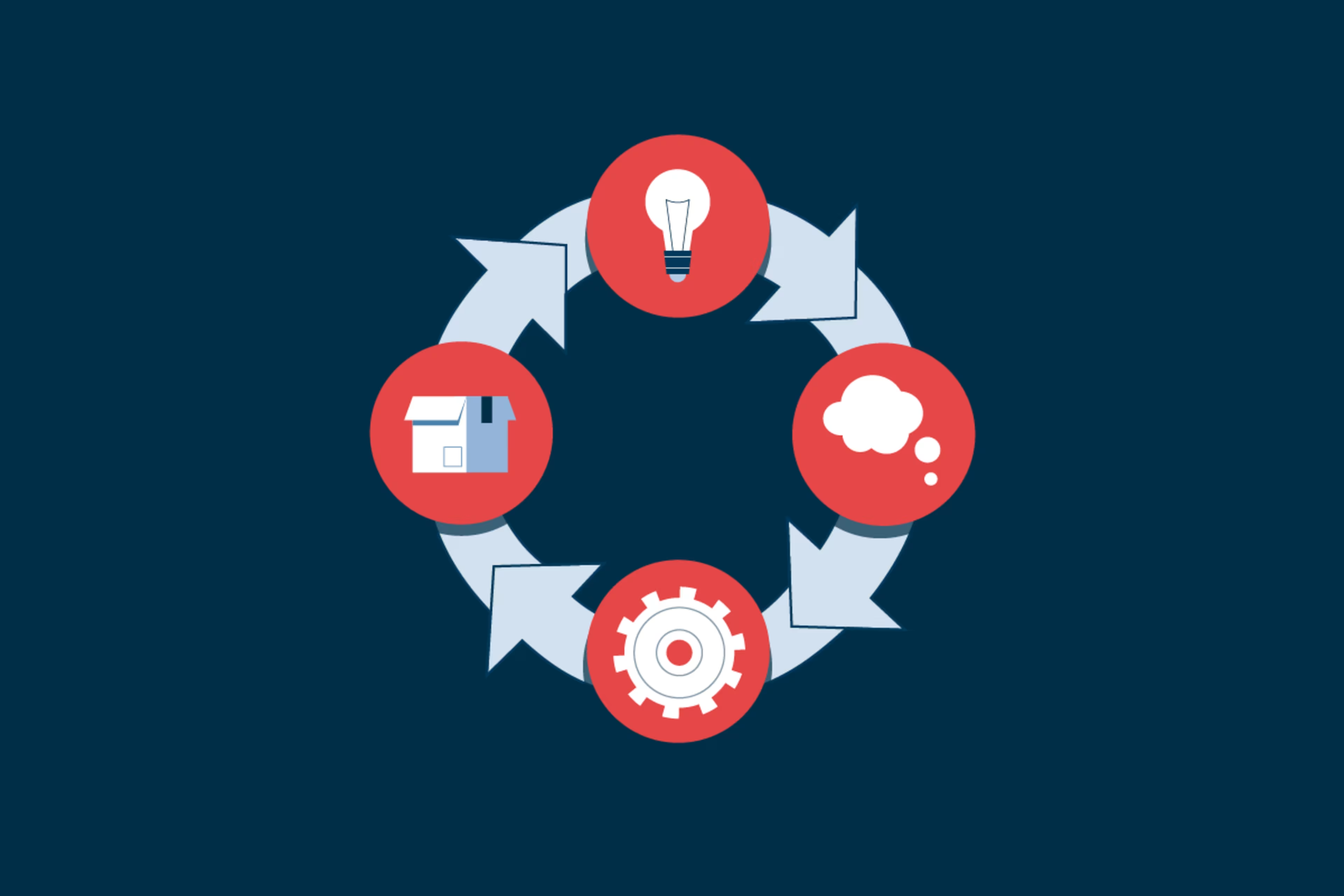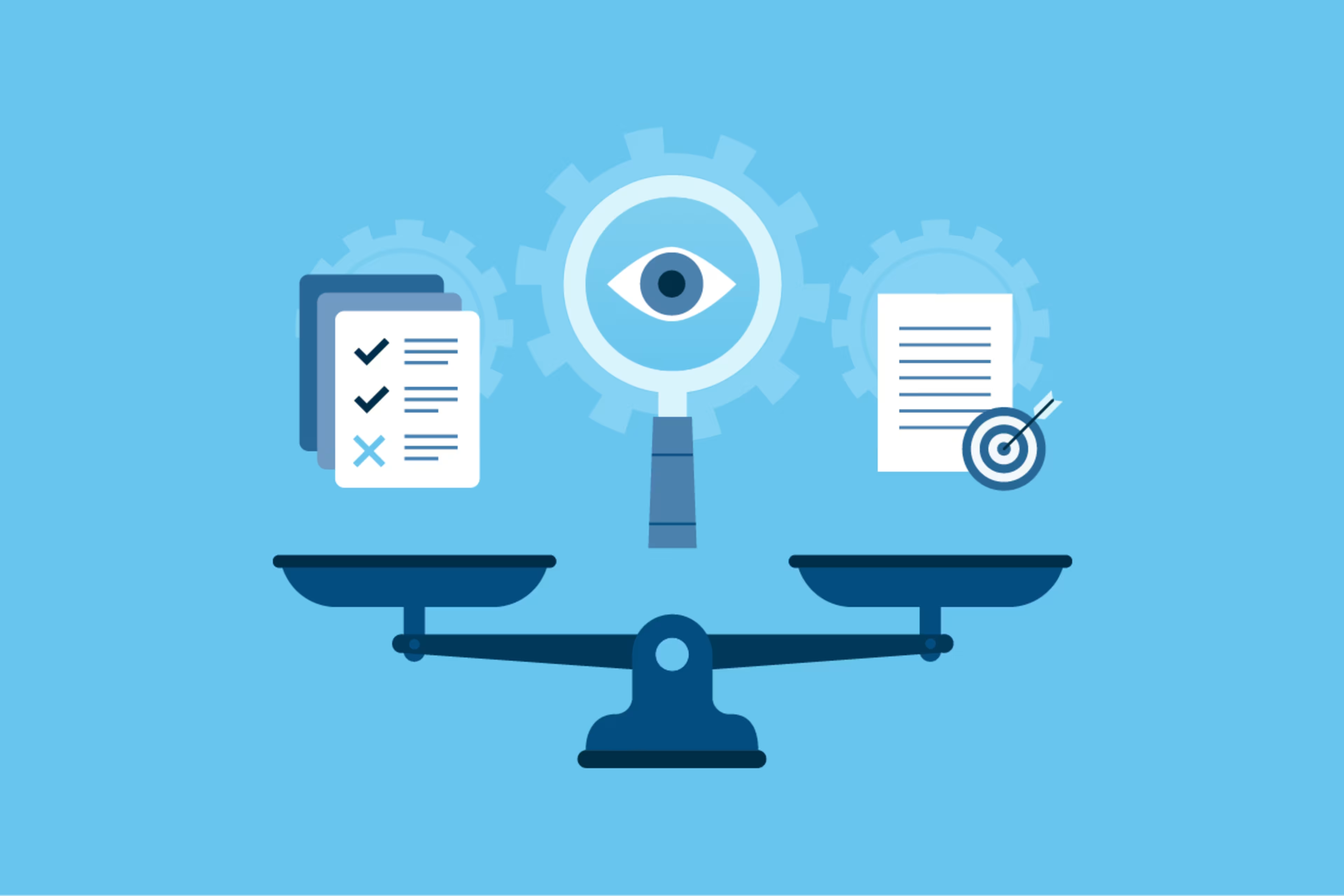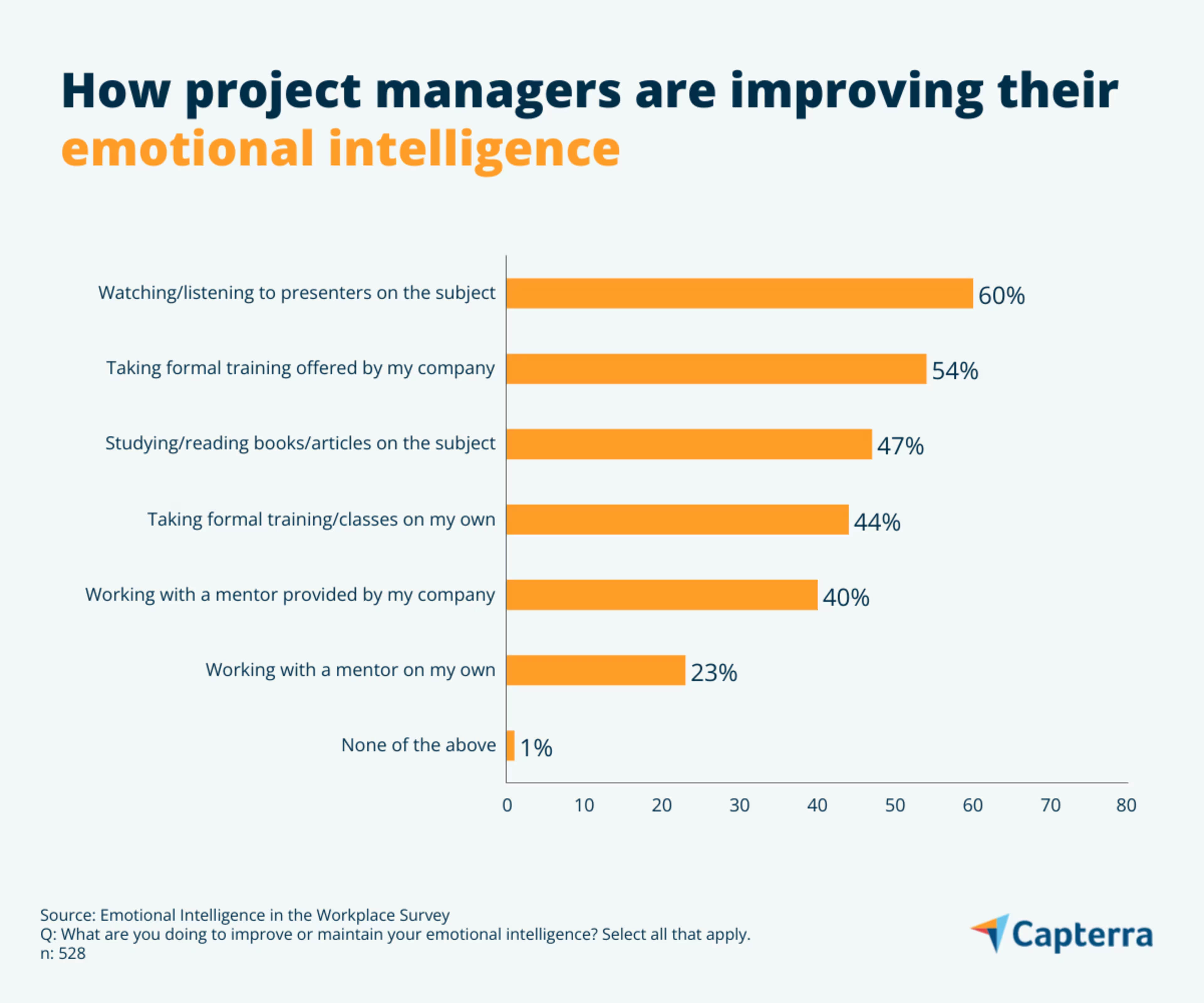Project managers are the ultimate multitaskers, often juggling dozens of initiatives in fast-paced environments across multiple communication channels. So whether you're brand new to leading projects or a seasoned pro looking to brush up and build on the basics, this is the essential guide to help you out. We'll cover everything from foundational project management principles and stages to methodologies, tools, and trends.
What is project management?
Project management involves planning, organizing, and controlling resources to achieve specific goals within a set timeframe (read through this well-explained resource to learn more). It helps complete projects successfully by ensuring the efficient execution of tasks and meeting objectives (project milestones are explained explicitly here).
Project managers oversee the entire project lifecycle, from defining goals to managing resources and coordinating team members. Plan, track, and manage projects efficiently by using the right project management software. These tools enhance collaboration, increase productivity, and improve project outcomes.
READ MORE ON PROJECT MANAGEMENT BASICS



Why is project management important?
Project management helps you plan and guide projects to success, ensuring consistency in execution. It makes things organized and focused. Let's learn more about the importance of project management:
Ensures efficient execution
Establishes timelines: By establishing clear timelines for the project, closely monitoring the schedule, and tracking progress, PM ensures punctuality and avoids delays.
Streamlines resources: Project management optimizes resources, assigning them where most needed and avoiding waste.
Controls costs: It acts as a key cost control device by facilitating budget planning and monitoring expenses.
Improves teamwork, communication, and risk mitigation
Fosters collaboration: Project management encourages team interaction, sparking innovation and efficiency through effective methodologies such as Agile, Waterfall, Scrum, Kanban, and more.
Enhances communication: It promotes clear communication channels, keeping everyone informed and aligned.
Mitigates risks: Identifying and tackling potential threats early is a key feature of project management.
Elevates customer satisfaction and repeat business
Meets customers’ objectives: Quality outputs ensured by effective project management often surpass customer expectations.
Drives loyalty: Aligning projects with customer needs leads to repeat patronage and long-term success.
SEE OUR RESEARCH ON PROJECT MANAGEMENT’S VALUE

What are the phases of project management?
Project management is more than just ticking tasks off a list. It includes key stages, each of which are crucial for a project’s success. It's important because it lets you handle risks, keep track of progress, and use your resources wisely. Dive into our guide, “A Breakdown of the 5 Phases of Project Management” to explore the stages in detail. Whether you're a pro or just starting out, this guide will show you how to navigate projects from start to finish.
Let’s walk through the five crucial phases of project management:

1. Project initiation
This is the first phase, where you decide if the project is doable and valuable. This stage sets the foundation for a successful project, involving three crucial steps:
Defining project goals: What does success look like? Understand and define your objectives, aligning them with overall business strategy. Read more on setting clear project requirements here.
Identifying stakeholders: Who has a stake in the project? Identify these individuals or groups to ensure effective communication and manage expectations. A DACI matrix helps you determine and document roles and responsibilities.
Defining project scope: What's in and what's out? Clearly outline your project boundaries in a project charter to prevent scope creep. (A clear scope is usually outlined in a project charter, which is a document that formally authorizes a project.)
The next step? Develop a detailed project plan, outlining the timeline, resources, and other critical steps. Learn how to create a robust project plan here.
2. Project planning
Planning is key to success in a project. It involves creating a schedule, using resources wisely, and preparing for potential problems. Let's explore these elements further.
Project schedule: This outlines the project's timeline, detailing when tasks will start, their duration, and when they're expected to be completed. For more on this, explore our in-depth guide on project scheduling.
Resource allocation: This involves identifying and assigning the necessary resources —people, equipment, and budget—for each task. Understanding the project scope clearly is the key here, as it defines what needs to be accomplished and who can do it best.
Risk assessment: This identifies potential project risks and plans for mitigating them. It helps maintain the project timeline by anticipating setbacks and planning contingencies accordingly.
Remember, meticulous planning is the springboard for efficient project execution, monitoring, and successful project closure.
3. Execution
This phase sets the project plan into action. The team works on the tasks outlined in the plan while the project manager coordinates tasks, facilitates effective communication with the stakeholders, and tracks progress. Let’s briefly explore these components:
Team coordination: This involves ensuring everyone knows their roles and responsibilities, facilitating collaboration, and keeping the team focused on the project goals.
Communication: Clear, timely, and transparent communication is key in this phase. You keep everyone—from project team members to stakeholders—informed about project updates, changes, or issues that arise.
Progress tracking: This is about monitoring task completion, milestones reached, and resources used against the project plan. It helps identify discrepancies early on, allowing for timely adjustments to keep the project on track.
As the execution phase progresses successfully, you must transition into the next crucial phase—monitoring and control.
4. Monitoring and control
Monitoring project performance, managing changes, and ensuring quality control are crucial aspects of project management that significantly influence a project's success. They’re tracked throughout the execution phase to ensure it's in line with the plan. Here's a brief explanation of each:
Monitoring project performance: Regular monitoring ensures early detection of issues, eases informed decision-making, and keeps the project aligned with its objectives.
Managing changes: Effective change management involves controlled assessment and implementation of changes, preventing derailment of project progress or outcomes.
Ensuring quality control: Regular testing and review processes ensure deliverables meet quality standards, boosting customer satisfaction and saving time and resources.
With monitoring, change management, and quality control in place, you can head toward the final phase—project closure.
5. Closure
In the final phase, we finish everything up. We review what went well and what we learned, release resources, and provide final deliverables to the client or stakeholder. Here’s what to take away from project closure:
Lessons learned: This involves a retrospective look at the project to identify what worked well and what didn't. By documenting and understanding these lessons, you can continuously improve your processes for future projects.
Project evaluation: This is a thorough assessment of the project's performance against its initial objectives. It helps you understand the overall project success and areas where you exceeded or fell short.
Knowledge transfer: This ensures that the insights and expertise gained during the project are shared and retained within the organization. It helps in skill development and prepares teams for similar future projects.
What are project management methodologies?
Project management methodologies are structured frameworks that guide a project's progression, helping you stay organized and reach project goals. Some popular project management methodologies include Agile, Scrum, Waterfall, Kanban, and others.
Each methodology has its own set of rules and ways of doing things to make projects run smoothly. Some are best for quick and small projects, while others work well for bigger and more complicated projects.
Choosing the right methodology is crucial but can be overwhelming. Here’s a list of 12 project management methodologies that can make it easier for you. Consider factors such as your team's size, the project's complexity, and stakeholder expectations. Remember, there's no one-size-fits-all method. Instead, you have to choose the one that works best for your project.
Now, let's delve deeper to learn about all the popular project management methodologies. This will help you find the one that fits your project's unique needs.
Methodology | Description | Best for: |
|---|---|---|
Agile | A flexible and responsive methodology that adapts quickly to project changes. Works in iterative cycles. Need a detailed understanding of Agile? Check out this guide. | Projects that require flexibility and frequent reassessment. |
Waterfall | A linear and sequential approach. Clearly defined stages that flow sequentially from start to finish. Learn more about the Waterfall method here. Also, check out this comprehensive piece on Agile Vs. Waterfall for a valuable comparative perspective. | Projects with stable requirements and a clear vision of the final product. |
Scrum | The Agile sub-methodology focused on flexibility, transparency, and productivity. Uses time-boxed periods called sprints for work completion. For a more comprehensive exploration of Scrum, follow this detailed guide. | Projects that require daily communication and continuous progress. |
Kanban | The Agile approach that emphasizes continuous delivery without overloading project team members. Uses a visual system to track progress. For a deep dive into Kanban, you might find this guide insightful. | Projects that require ongoing work and continuous delivery. |
Critical Path Method (CPM) | Step-by-step technique for process planning that identifies critical and non-critical project tasks to prevent conflicts and delays. To delve into the specifics of CPM, explore this informative piece. | Complex projects with interdependent tasks. |
Six Sigma | A data-driven methodology aimed at reducing defects and improving quality. Uses statistical methods to eliminate inefficiencies. Learn more about this methodology and its applications here. | Large-scale, complex projects where quality is paramount. |
Extreme Programming (XP) | Agile methodology used for software development. Emphasizes customer satisfaction and enhances software quality and responsiveness. For an in-depth understanding of XP, check out this guide. | Software development projects that need frequent releases and flexibility for changing requirements. |
Other methodologies
While Agile, Scrum, Waterfall, and Kanban might be the most widely recognized methodologies, there are other approaches as well that could be better suited to specific project types.
Lean methodology: An efficiency-centered methodology that eliminates waste from the process to deliver value. Read more about Lean methodology here.
Scrumban methodology: This is a hybrid of Scrum and Kanban. It combines the flexibility and responsiveness of Scrum with the visual and continuous flow aspects of Kanban.
PRINCE2 methodology: An acronym for Projects IN Controlled Environments, this is a structured methodology with clearly defined roles and responsibilities.
Explore more project management topics:
What are some top project management tools?
Modern project management has evolved and now requires digital solutions. The transition from conventional spreadsheets to advanced project management tools is more of a strategic necessity than an option. These tools provide several key benefits, including:
Improved accuracy
Streamlined operations
Efficient time management
Enhanced collaboration
Real-time visibility into project progress
Capterra’s guide on building a compelling business case for project management software helps you clearly communicate these benefits to the rest of your company.
Once you’ve gotten buy-in for a new system, save time identifying the highest-rated and most popular products by checking out our project management software shortlist. This research is an annual ranking of 1,500+ products based on a proprietary blend of verified user ratings and popularity.
Here are the top four considerations you must evaluate when choosing a project management software:
Consider tools that cater to your industry or function
The nature of your industry or the specific function of the project plays a crucial role in the software selection process. Ensure the tool has relevant features catering to your specific needs. For example, look for customizable workflows, industry-specific templates, and compliance tracking, if relevant.
Here are some of the top project management tools depending on your industry or function:
Ensure the system is compatible with your chosen methodology
Your project management methodology significantly influences the choice of your tool. For instance, if you follow Agile, particularly Scrum, you'll want a tool that supports sprints, backlogs, and Scrum meetings. You can explore a list of free Scrum software options here to find one that suits your needs.
On the other hand, if you adhere to the Waterfall model, you'll want a tool that emphasizes stages and milestones, often represented with Gantt charts. Take a look at these free Gantt chart software options. In addition, some project management tools support multiple methodologies, allowing you to manage different types of projects within the same tool.
Factor in key business needs as you compare systems
Understanding your business needs from a PM tool is pivotal, incorporating elements like real-time collaboration, in-depth analytics, and risk management features. Here are some essential key features of project management software you may want to look for. Also, consider top-rated task management solutions if the tool needs to cater to specific tasks.
In managing diverse business and project duties, comprehending the differences between business and project management is essential. A comparison guide can help illustrate these distinctions. Furthermore, if you are also involved in product development, you’ll want to understand the difference between project vs. product management to clarify the two better.
Figure out if you need integrations with existing tools such as email, CRMs, or financial software, and whether the tool needs to be scalable to accommodate your business's growth.
Determine how big of a factor your budget (if any) should be
Budget significantly influences your choice of a PM tool. There's a spectrum of free solutions spanning all the way to high-end ones. To understand this pricing landscape, review this Capterra report. Remember, an expensive tool isn't necessarily better. Balance the cost against potential benefits such as improved efficiency. For those on a tight budget, consider top free project management tools. The goal is to find a tool that offers maximum value for your investment.
/ RELATED SOFTWARE SYSTEMS
See a full list of products that could be a fit for your business:
What are essential skills for project managers?
Project management demands diverse skills to drive success, regardless of the project's nature or industry. Irrespective of your experience level, some fundamental skills are key to effective and influential project management.
To understand the importance of these skills, let's consider the concept of a PMO or Project Management Office. In the context of project management, a PMO refers to a dedicated department or group within an organization that defines and maintains standards for project management. It does so by providing necessary guidance, documentation, and metrics related to the practices involved in managing and implementing projects. This is where some of these skills come into play:
Leadership: An indispensable skill, you must inspire, motivate, and empower team members to deliver their best work.
Communication: Effective communication helps you define project goals, expectations, and responsibilities, ensuring alignment and collaboration among stakeholders.
Problem-solving: Projects frequently encounter obstacles. You need to be adept at identifying issues early, devising solutions, and implementing them efficiently.
Adaptability: In a dynamic environment where variables can change rapidly, you must be flexible and responsive, adjusting strategies and tactics as necessary.
In a dynamic environment where variables can change rapidly, adaptability is critical. As part of a PMO, project managers must be flexible and responsive, adjusting strategies and tactics as necessary. Beyond these primary skills, there are other significant competencies, including:
Stakeholder management: Understanding and addressing different stakeholder interests is crucial.
Negotiation: Reaching agreements that benefit all parties is often necessary for project management.
Conflict resolution: Managing interpersonal dynamics within teams and ensuring harmonious collaborations is essential.
READ MORE ON PROJECT MANAGEMENT SKILLS




What are the best practices in project management?
Following best practices, you can anticipate and mitigate issues, streamline processes, and promote clear communication among team members and stakeholders. This leads to efficient execution and successful project completion. Here are some critical best practices:
Manage workloads effectively: Distribute tasks evenly and reasonably among team members according to their skills and capacities. Engage stakeholders in decision-making processes to ensure their buy-in and support. See more workload management strategies here.
Maintain comprehensive documentation: Keep detailed records of every phase of your project (from initiation and planning to execution and closure) to promote transparency and accountability.
Establish clear communication plans: Ensure all project members and stakeholders are informed about progress and changes with regular updates. This eliminates ambiguity and ensures everyone is updated about the project’s progress. Discover key elements of a transparent project plan here and check out our 4-step guide to build one.
Handle change management efficiently: Prepare for project changes by being flexible with timelines, resources, and scopes. A good change management process can help minimize disruptions and keep the project on track.
Implement risk management strategies: Identify potential risks early with this guide, assess their potential impacts, and have plans ready to manage them. This includes creating contingency plans to ensure the project stays on track even when issues arise. As part of your risk management toolkit, you might consider using risk management software.
READ MORE ON PROJECT RISK MANAGEMENT




What are some emerging project management trends in 2023?
Project management has always been a dynamic field, adapting to emerging technologies and evolving organizational needs. Here are some of the emerging trends that will impact the future of project management:
Artificial Intelligence (AI) and automation: Gartner predicts that AI and machine learning (ML) will take over 80% of the functional project management tasks.[1] AI can help generate performance insights, support decision-making processes, make estimates and predictions, optimize resource scheduling, enable data visualization, and perform risk analysis. Read more about the state of AI in project management here.
Rise in remote working: Remote working has surged in recent years, bringing up challenges for project managers. According to Forbes, 97% of employees don’t want to return to their offices full time.[2] Remote monitoring and management software can be crucial here, helping PMs stay on top of their teams’ tasks and projects seamlessly.
Demand for emotionally intelligent leaders: Emotional intelligence is becoming increasingly important for project managers, especially with the rise in remote working. According to Capterra’s Emotional Intelligence in Project Management Survey Data*, 75% of PMs report having increased their use of their EQ in 2023 to continue leading successful project teams.

The digital transformation in project management has been significant, with the adoption of advanced technologies and tools being a key trend. However, it's important for you as a project manager to balance the use of technology with the development of project management skills, doing research, and using automation where it can save time.
MORE ARTICLES ON PROJECT MANAGEMENT TRENDS




Download Capterra’s free project management toolkit
This master project plan template provides a clear roadmap for small-business leaders and project managers. It aids in defining project goals, scope, and the RACI matrix, helping to clarify roles and expectations.
The template encourages detailed tracking of project deliverables, aiding in measuring progress. Emphasizing accurate timeline and budget estimations, it helps prevent cost and time overruns. Lastly, it allows for effective resource allocation and task assignment, promoting optimal use of skills and expertise.
